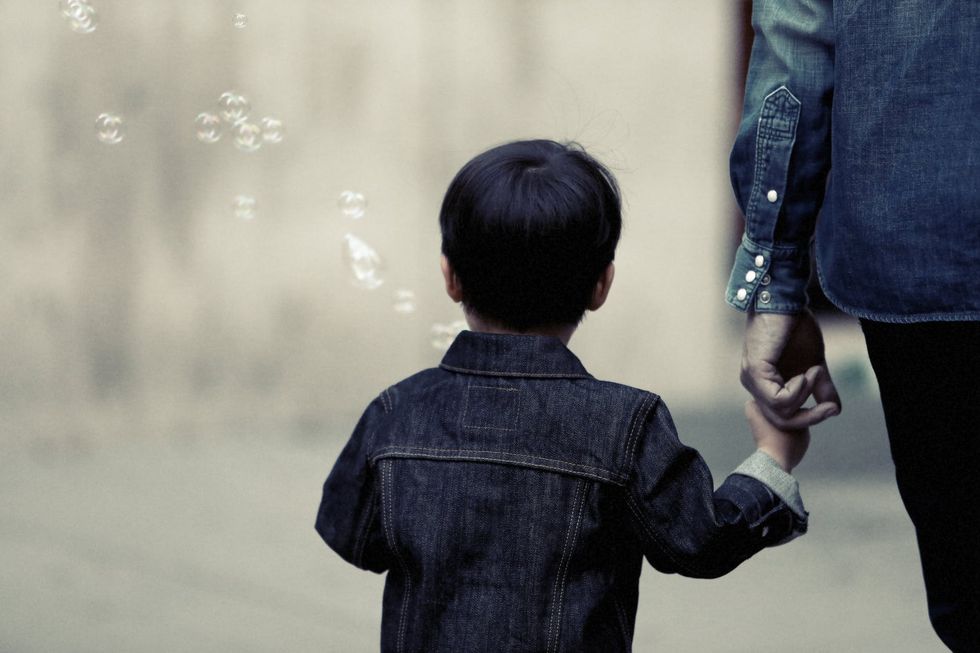A familiar time of comfort and security when the monsters disappear and your senses are flooded by the warmth of your mother’s embrace. Imagine the countless bedtime stories and peanut butter and jelly sandwiches. For many children, this fantasy is something dreamt, but not experienced.
According to the Children’s Rights organization, “On any given day, there are nearly 428,000 children in foster care in the United States.”
Adoption can change this statistic and make the dreams of a child come true, but the process can be difficult.
Many people don’t know what adopting children involves. My intentions are to reach the minds of those don’t know what it takes, emotionally and physically.
When adopting children, all cases are unique and require a different procedure. I intend on speaking on my own situation in congruency with the knowledge of professionals and accounts of people who have a personal connection with adoption.
Child Protective Services primarily carries out DCF's (Department of Child and Family Services) mandate and responsibility to investigate all reports of alleged child maltreatment and to provide services to all children found to be in such a condition. When this happens, there are procedures that must be followed carefully to ensure the safety and smooth transition of the children.
One of the first steps is to contact the relatives. This is part of the Kinship Care Law and kinship care alternatives.
If the child is being held in a different state than the family member, the case must be transferred through the interstate compact. “The Interstate Compact on the Placement of Children (ICPC) is a statutory agreement between all 50 states, the District of Columbia and the US Virgin Islands. The agreement governs the placement of children from one state into another state,” as described by the Association of Administrators of the Interstate Compact on the Placement of Children.
In my experience, the interstate compact is intended to be put into action when the children are in a different state than the family member(s) who are interested in adoption. To assure the most productive route, the state’s child welfare system must communicate efficiently and within an appropriate period.
The Kinship care law, defined by maine.gov, is “the placement of a child with relatives on a permanent basis once the court or the family has determined that the child will not be returning to the home and care of the parents.” This law aims to find relatives that may be willing to adopt so the child can be with family instead of going into foster care.
From the account of my parents, proper procedures have not been followed by the organizations and the kids and us have suffered for it, but continue to complete all requirements necessary to reunite my nieces and nephews with our family, even when we felt attacked and discouraged by the system.
There are not only steps that the must be taken by the organizations, but also by the family looking to adopt. In addition to fingerprinting, home studies, background checks, and multiple forms, a mandatory course must be taken for the family to be certified to either foster or adopt which consist of one three and a half hour class, one day per week, for 11 weeks.
One woman who has adopted two years after beginning the course shared her experiences by saying, “Positive aspects, I am able to provide a loving, stable and substance-free home for this little girl to thrive and grow. Watching her learn new things daily and see how much she is progressing with our family is so fulfilling.”
Continuing, she relayed, “Negative; the length of time it takes. Parental visits and [the] negative impacts it has on the child. Having to ask permission from social working to go on a trip. [It all] changes with DCF staff. All together it’s a very rewarding experience with lots of emotions. Times can be stressful and deadlines to meet, it’s also a confusing time for the child you’re adopting and your biological children as well. But in the end, you know that you’re doing something so special and it makes all worth it.”
Another woman who adopted had a different point of view. Her husband is employed by DCF and, though it all worked out in the end, even they hit obstacles along the way.
She began by saying, “We started the adoption process in April of 2010. We were applying through the State of CT so first, we needed to get licensed as a pre-adoptive foster home. We completed the application, consented to background checks, got fingerprinted, attended several interviews with a licensing social worker and participated in the PRIDE class (training for new foster homes) for three hours per week for about 10 weeks. All of the elements were complete by the end of August 2010.”
Speaking on the positive aspects of her experience adopting she explained, “We are blessed with two happy and healthy kids. They were able to stay together, and they will always have each other. They have some ongoing support from the State including health insurance and funding for college.”
But there were also some negative elements that she would agree are discouraging such as, “Working with DCF was difficult at times. They treated us as if we were child abusers instead of foster parents. The case moved from one office to another midway and the new office tried to change several things. The kids continued to attend visits with parents including some in Jail with [their] Dad. The kids were considered “legal risk” meaning they could go back to their parents any time before the TPR trial.”
These two strong women and their families have overcome the hindrances that we are currently going through. They, both, have had happy results and with the support of the organizations, we hope we do as well.


















